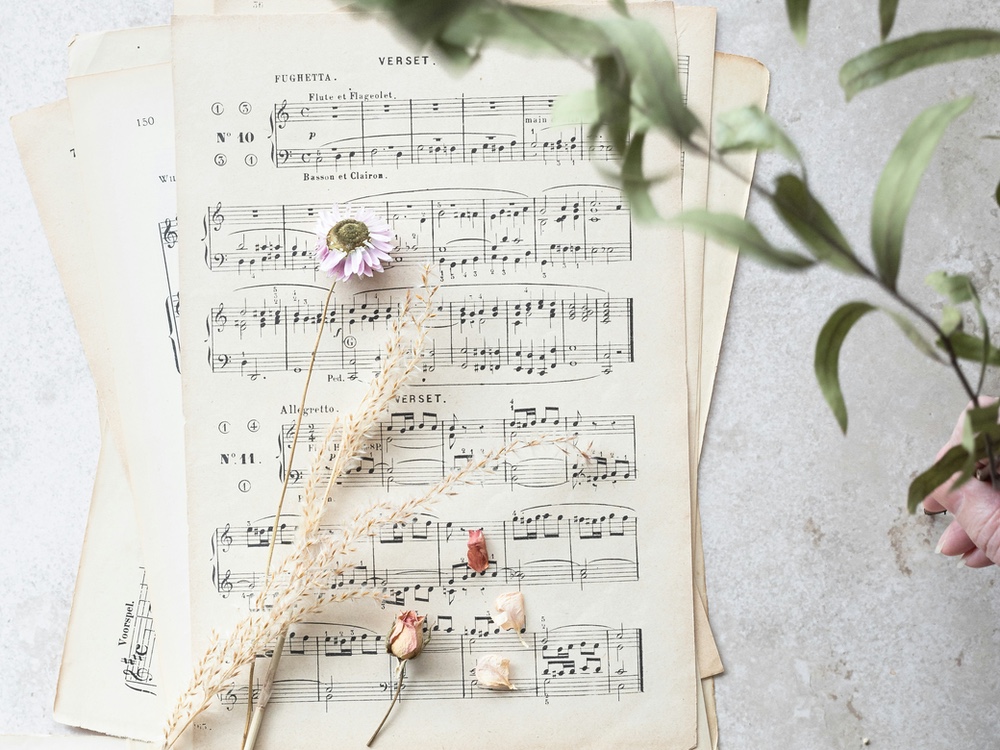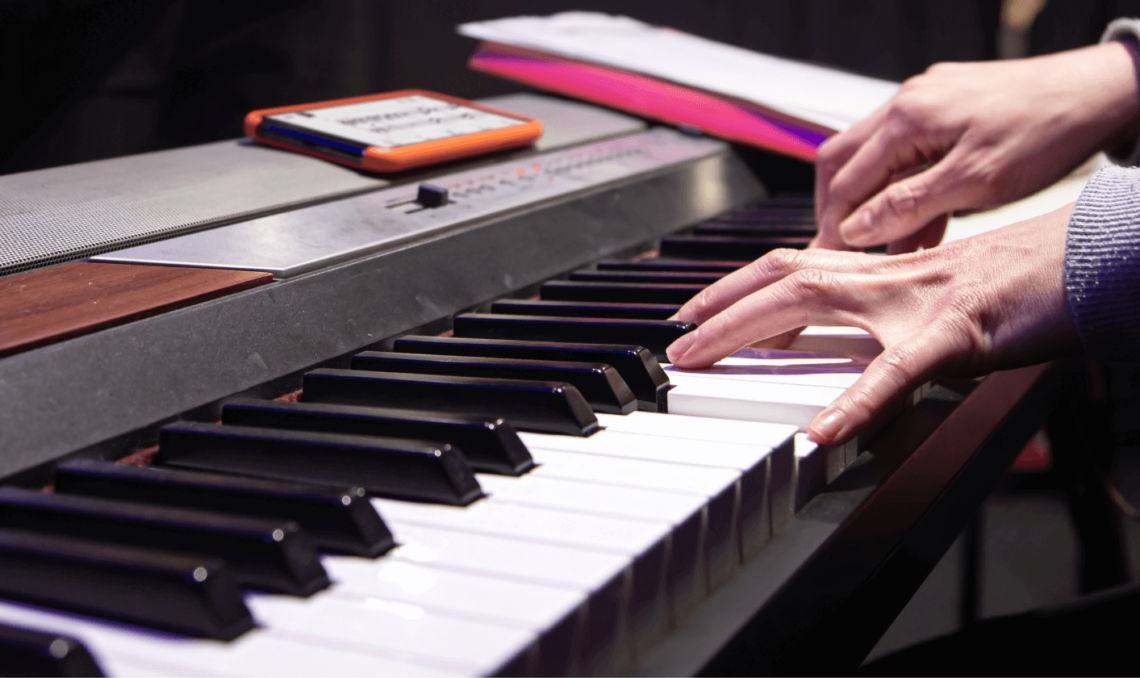“I am hopeless at playing the piano, I’m just not getting better. I´ll probably quit.” If thoughts like these sound all too familiar to you, don’t despair! Have a look at our list of the 10 most common mistakes aspiring pianists make, and if you discover that some of them are what you’re doing, we’ll tell you how to fix them.
Mistake 1: Being Overambitious
Learning to play a new instrument is so exciting! Chances are, certain songs inspired you to start, so naturally, you want to be able to play the music you love as soon as possible. But if you try too soon and find it too hard, you’ll end up feeling frustrated, wondering if you’ll ever become proficient enough. Here’s the good news – you will! But do yourself a favor and temper your ambition a little – try to keep it realistic.
Don’t get us wrong, we love ambitious piano players. But progress will take time, and if you’re already following the practice routines we’ll introduce you to, no amount of extra determination will speed it up even more. Your hands have over 60 muscles that have to be trained to do things they’ve never done before! Your ligaments have to stretch and flex to give you reach, and we’re not even starting to talk about what it does to your brain to read music, and coordinate each hand at the same time independently. Let’s just say there’s a lot going on, which is why it is impossible to become a virtuoso within a few months!
Instead, focus on practicing music that is appropriate for your ability, and slowly work your way towards more difficult material. OKTAV is perfect for that purpose, as you find so much choice for every skill level out there. Give yourself time and credit for the progress you are making!
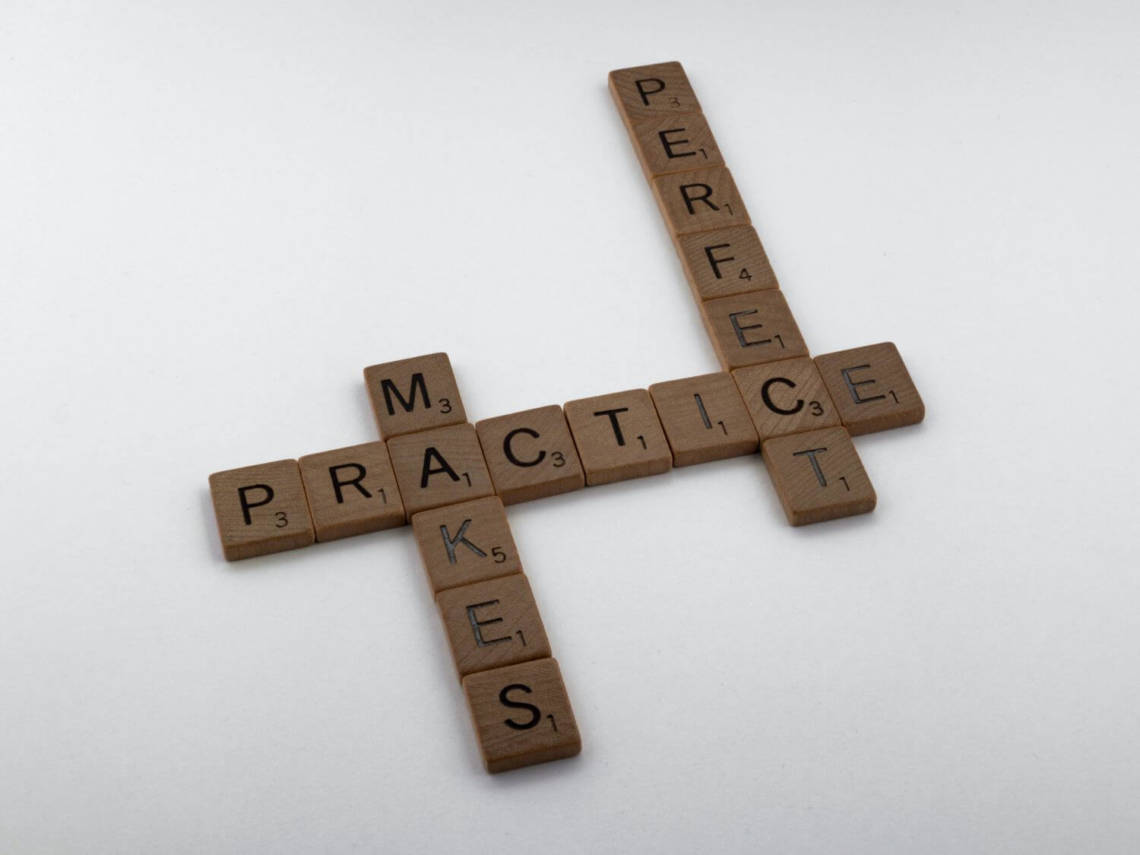
Mistake 2: Sloppy Repetition
It’s true that repetition is the most effective method of aiding the brain in mastering a new concept. Yet the wrong kind of repetition is detrimental to the musical learning process. How can you find out whether you are using the wrong type of repetition?
Here are the signs. You are doing it wrong if you…
- Stumble over the same passages over and over
- Practice at tempo, but can’t keep it without making mistakes
- Correct yourself whenever you feel like it, but not consistently
- Hardly notice any improvement over a long period of time

Use the 5x Method
Rushing through repetitive exercises trains your brain to make the same mistakes over and over, which ultimately contributes to frustrating setbacks. Instead of half-heartedly trying to fix issues and moving on, use the 5x Method. Select 1-2 measures of music you are struggling with and determine which hand is the more significant one in the section. Start with that one, and play only the selected measures five times in a row – slowly and deliberately. If you make a mistake on any of your attempts (even on the 5th try), be sure not to move on.
Stop. Breathe.
And begin again until you have successfully practiced your selected section 5 times in a row, at a steady tempo, with no errors.
Next, you can decide whether to increase your tempo (if you have not yet reached the piece’s given tempo). Or whether you want to move on to work on the transitions in and out of the difficult section, practice the other hand or, later, the coordination of both hands. Sounds tedious, right? But persevere and you´ll see results very quickly.
Mistake 3: Focusing On The Easy Stuff
Difficult sections are like new shoes – you need to break them in before they feel comfortable. So why not wear your comfy old sneakers all the time? In other words, you play stuff that’s easy for you 99 % of your time, and rush through difficult passages in hopes they will somehow get easier in time. Well, you guessed it – the difficult passages won’t autocorrect. The brutal truth is: We spend too much time playing stuff we enjoy. Of course, you do not enjoy technical exercises as much as that funky pop tune. Nobody does! However, your progress will stagnate if you spend too much time doing what you’re already great at.
What you need to do is: Use a metronome and tackle the hard bits slowly. Yes, we know, the clicking noise is not the sweetest sound that ever caressed your ears, but practicing with a metronome is the most efficient way to make progress in a short amount of time. Additionally, your overall sense of rhythm and steadiness will improve. In the end, your difficult piano pieces will be the sweetest sound that ever caressed your ears!

Mistake 4: Getting Sidetracked
Life is busy, schedules are packed and to-do lists are endless. Since you can’t just quit your job to have enough time to practice a wonderful piece of music, you do it the other way around: You stop your regular practicing. But guiltily cramming in an extra-long piano session the day before you have your next lesson (and we’ve all been there!) is much less effective than shorter periods of daily practice.
Why is that so? Learning to play a new instrument is like training your brain in a new language that you speak with your hands. And while you do that, different parts of your brain are getting involved. Roughly speaking, you need to move your new skill from the part of your brain that focuses on mastering new stuff to the part of the brain that does things automatically, then you add some more into the part of the brain that learns new things, and move that … you get it. It is a continuous process.
So, if at all possible, make time to practice every day – even if you just have fifteen minutes it will be a lot more efficient than longer but fewer sessions. Block your practice time in your calendar and stick to it. If you want to, you track your daily progress using a practice journal.

Mistake 5: “Performing” While Practicing
This is probably the worst thing to do if you seek rapid improvement. You know what we mean – stumbling through the entire piece, making random mistakes (because it’s more than you can handle), starting and stopping as you go, trying to gloss over difficult passages (so your imaginary audience won’t notice). That`s really bad. You mislearn. You memorize incorrectly. You’re horribly frustrated because you can’t play the piece without a plethora of mistakes. Don’t do this to yourself!
The remedy is simple: If you practice, you don’t perform. While it’s true that performing counts as practice, it doesn’t work the other way around. There will be a time to play the whole piece from start to finish. But not while you start practicing it. Try this formula:
- Analyze the form of the piece. Break it down into phrases or sections. Which ones repeat, which ones differ? Don’t forget to examine the accidentals before even touching your keys.
- Determine which passages are easy and which are more difficult. Practice these separately.
- Designate a time to practice each section. It’s fine to tackle a hard passage and nothing else that day.
- If you then make the right moves at the right time, start adding dynamics and artistry.
- Once you feel confident playing the individual passages, that’s the perfect time to play the piece from start to finish.

Mistake 6: No Active Listening
Imagine you are in a candy store, and it smells of sugar and bubblegum, and there’s soft eighties’ pop playing in the background, but you hardly notice it. That’s an example of passive listening. Your ears are physically exposed to the music, your mood may be influenced by it, but your mind’s not on it – you’re not actively listening. Fine if you’re in the candy store. Less fine if it happens when you’re in front of your piano, practicing.
Often, aspiring pianists become so used to their practice routines they forget to listen closely. If you want to improve, you need to play and a the same time analyze what you’re doing. How does your touch and technique affect your tone, expression, articulation, and emotion of the music?
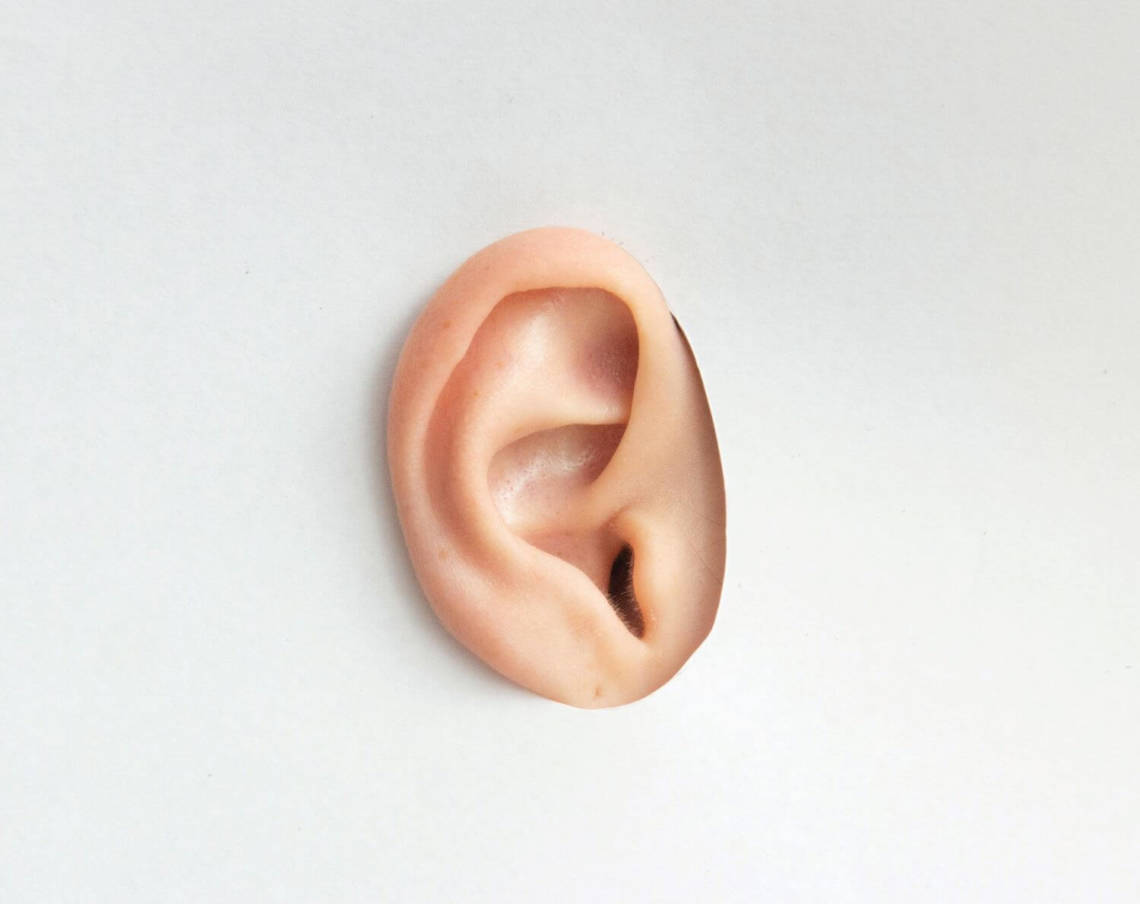
Record Yourself Playing
Then really listen and analyze: What sounded good? What needs improvement? Was your recording different from what you expected? How did your performance compare to the original artist’s interpretation? After you’ve asked yourself these questions, record yourself again with your new perspective. Then compare the recordings – did the new recording sound differently? If so, what did you change?
Make recording yourself part of your daily practice routine to improve your active listening skills. Every note of a piece of music is meant to convey something, to contribute to the whole. If you are playing forte, why is that? If you are playing rubato, why is that? Are you even aware you’re doing it? Be intentional with your interpretation, and don’t simply play something because the composer has written instructions into the score – think about the purpose behind it.
Don’t Go On Autopilot
It’s easy to let your mind wander while you’re playing. Resist the urge to daydream or plan your next meal! Instead, focus on the emotion you want to convey to your audience and how you can communicate it through your playing. You can always daydream later!
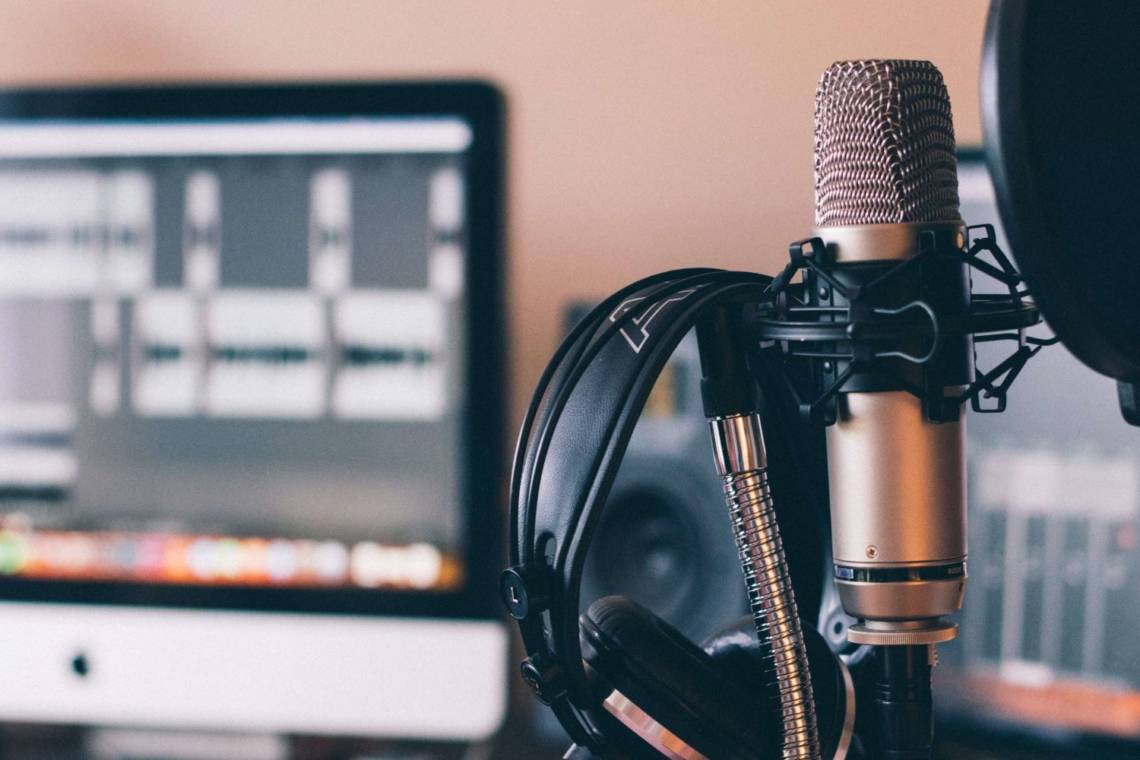
Mistake 7: Haphazard Practicing
So you´ve set aside time to practice every day. Good. And you sit down in front of the piano every day at the assigned time. Good. And then you randomly play whatever you feel like playing until practice time is up. Bad.
The solution? Make a checklist before the practice session – mentally or on paper, but map out what you want to do. Be honest with yourself about what you really need to work on, what you want to play for fun, and how much time you should be spending on each portion of your practice routine. Try to tackle the most difficult tasks on your list first. Often, we are most energized at the beginning of our practice time and we feel rewarded when we finally allow ourselves to rock our favorite tune at the end of the session.

Mistake 8: Not Connecting It All
So you want to perform and then perform some more. That’s what pianists do, right? Well, more often than not, they don’t. What they really spend a lot of their time on is cultivating all the abilities you need to become a great performer. Spending time on scales, theory, or ear-training exercises can seem like a wasteful distraction when all you want to do is to wow your audience. But every aspect of practice is an essential piece of the perfect pianist puzzle.
- Practicing technique will help you develop greater dexterity and coordination.
- Knowing your music theory will enable you to quickly analyze and understand a new piece.
- Spending time on ear-training helps with artistic expression.
If you as a beginner connect all the dots, it shows you understand that even the most mundane aspects of practicing still contribute to your ultimate goal – making beautiful music. And trust us, you will reach your goal.

Mistake 9: Allowing Practice To Bore You
So a lack of consistency can ruin your career as a piano player. But so can allowing your daily practice to morph into a monotonous mood-killer!
If rehearsing the same things day after day leaves you feeling so trapped and bored that you’re tempted to skip sessions altogether, you need to change your routine! Be creative! Search for new exercises – check out these 3 warm up excercises!
Did you practice scales yesterday? Then give them a rest today, and instead do arpeggios. Play them to the chord changes of your favorite tune! Stuck in the same section of a song? Change your approach! Keeping your practice routine fresh is absolutely doable, don’t give up!

Mistake 10: Playing for Perfection
Here’s another harsh truth: When you begin to learn the piano, you’re going to suck at first. Guess what – that’s normal and okay! Even pianists with years of experience are not perfect players! We all just keep growing and learning.
Music isn’t about being perfect – it’s about exploring, discovering, enjoying, and immersing ourselves in a beautiful and fantastic expression of human emotion.

Don’t aim for perfection! Enjoy the journey and strive to be a little better each day. Happy practicing – and enjoy playing the piano with OKTAV.

